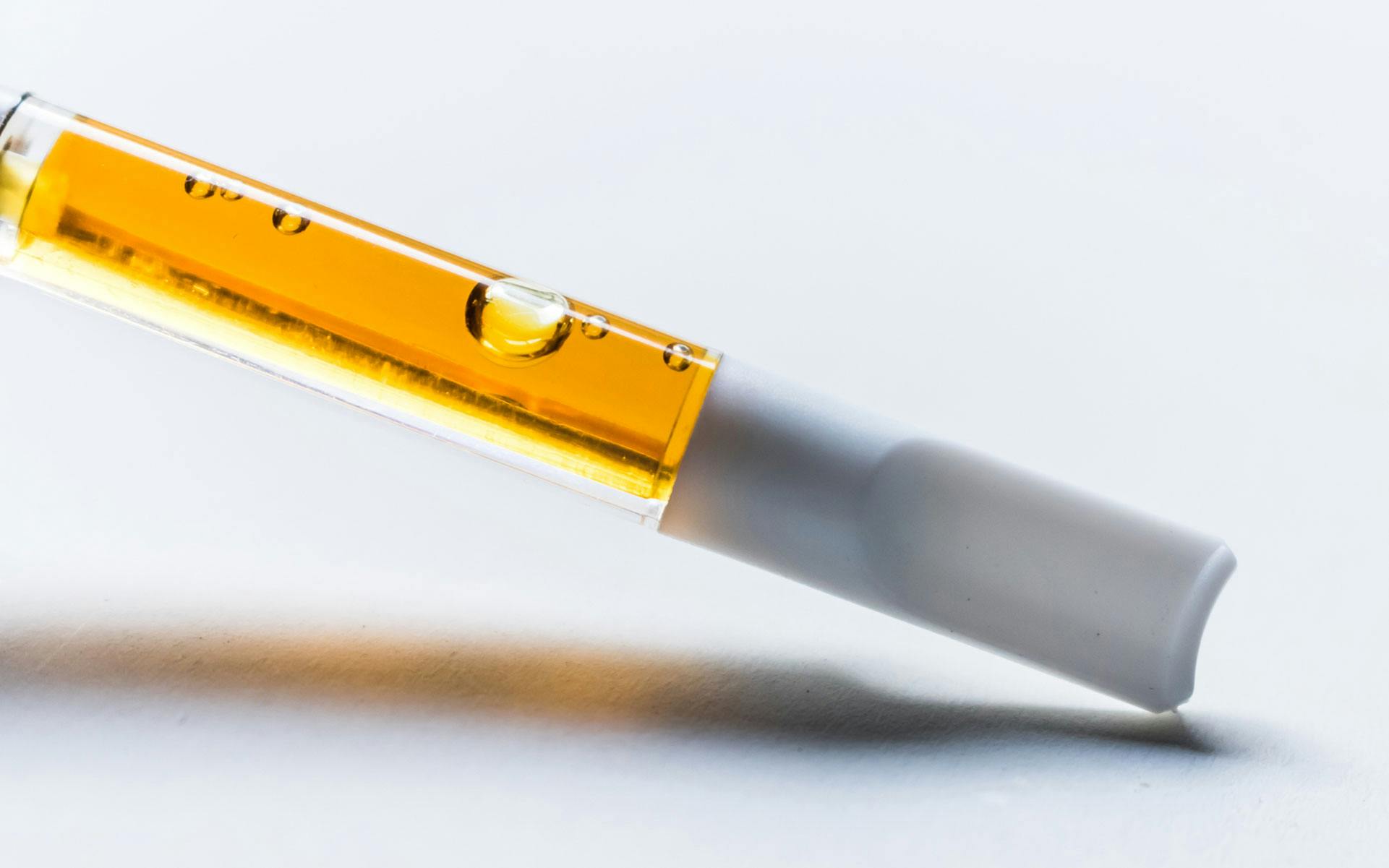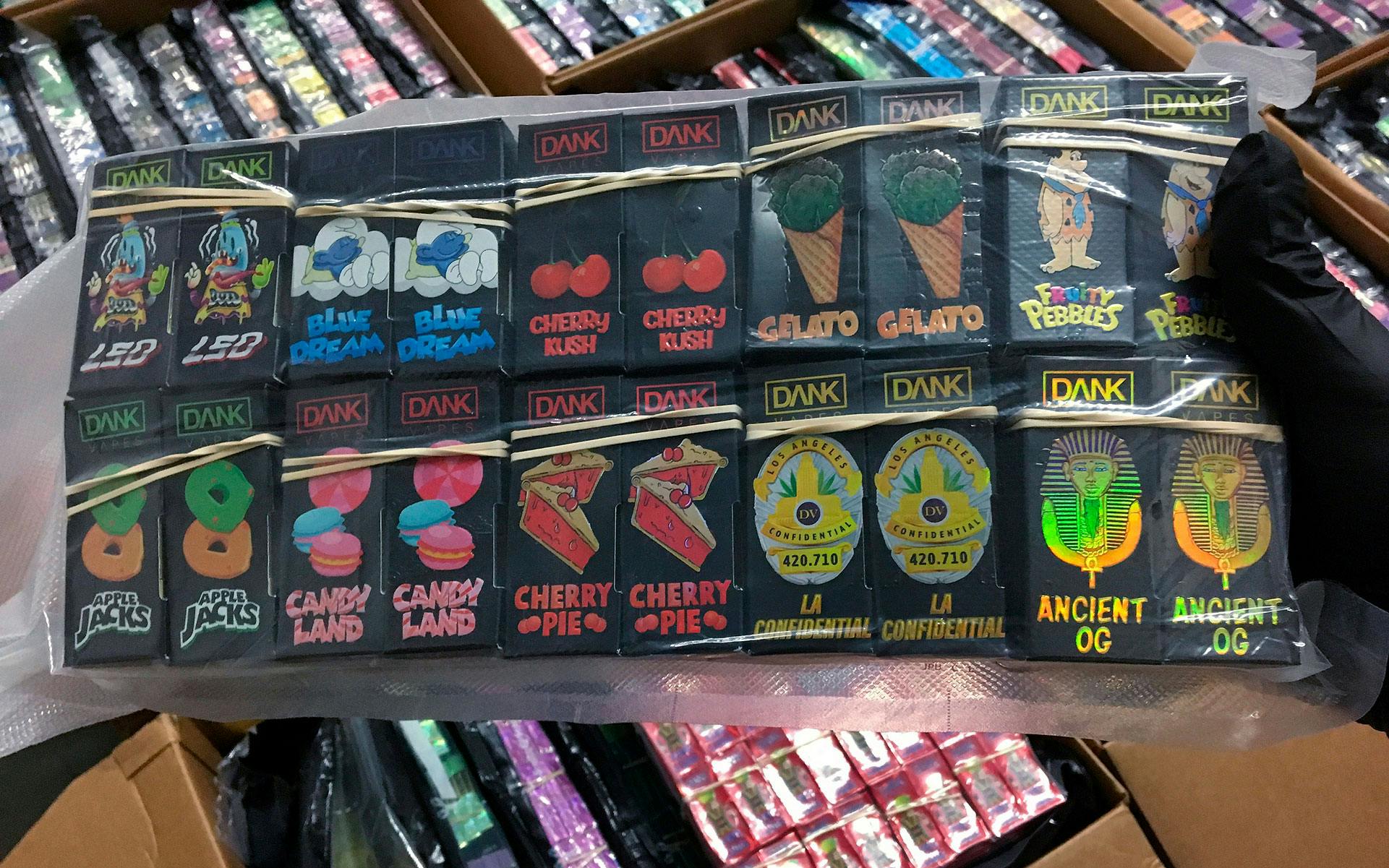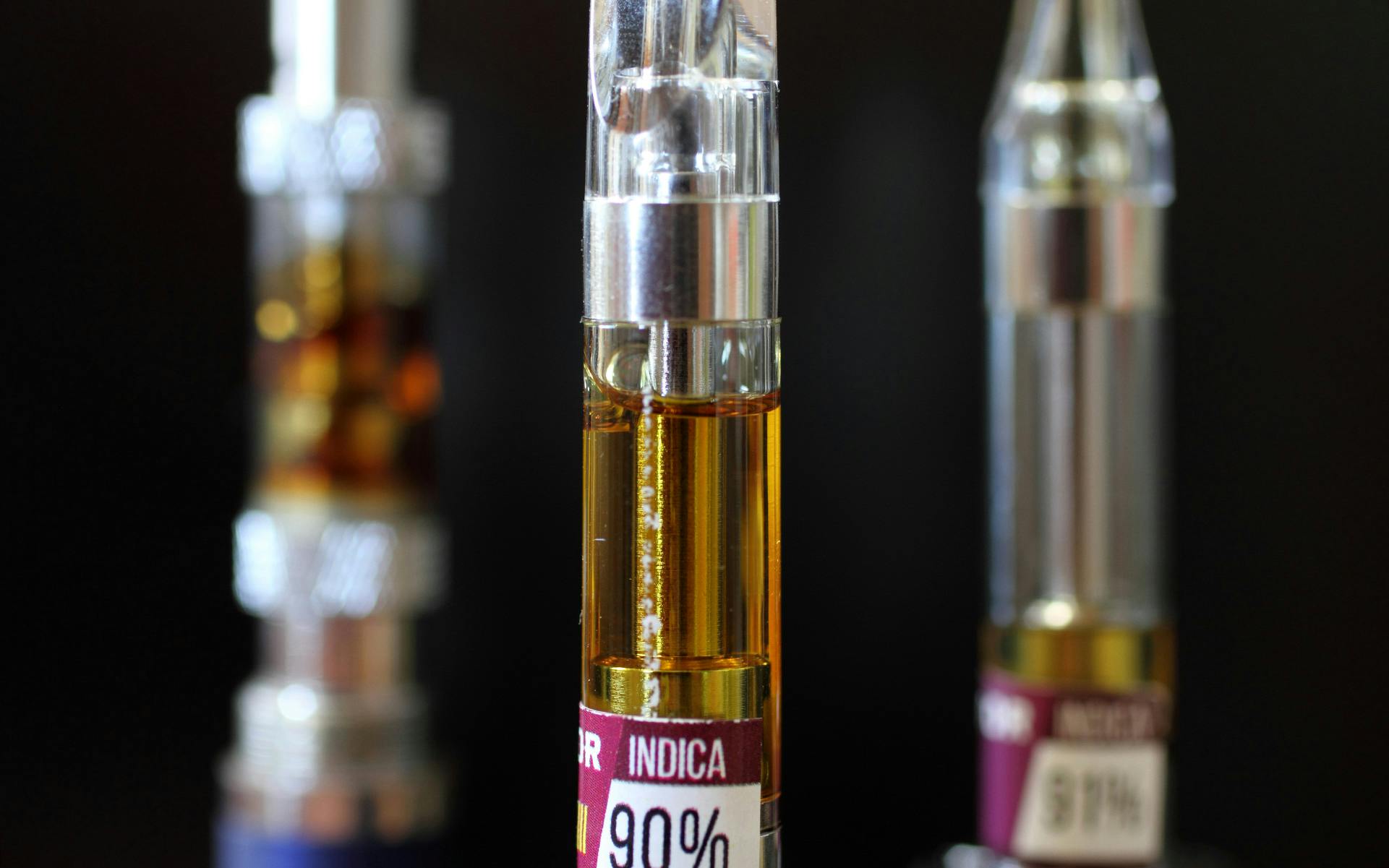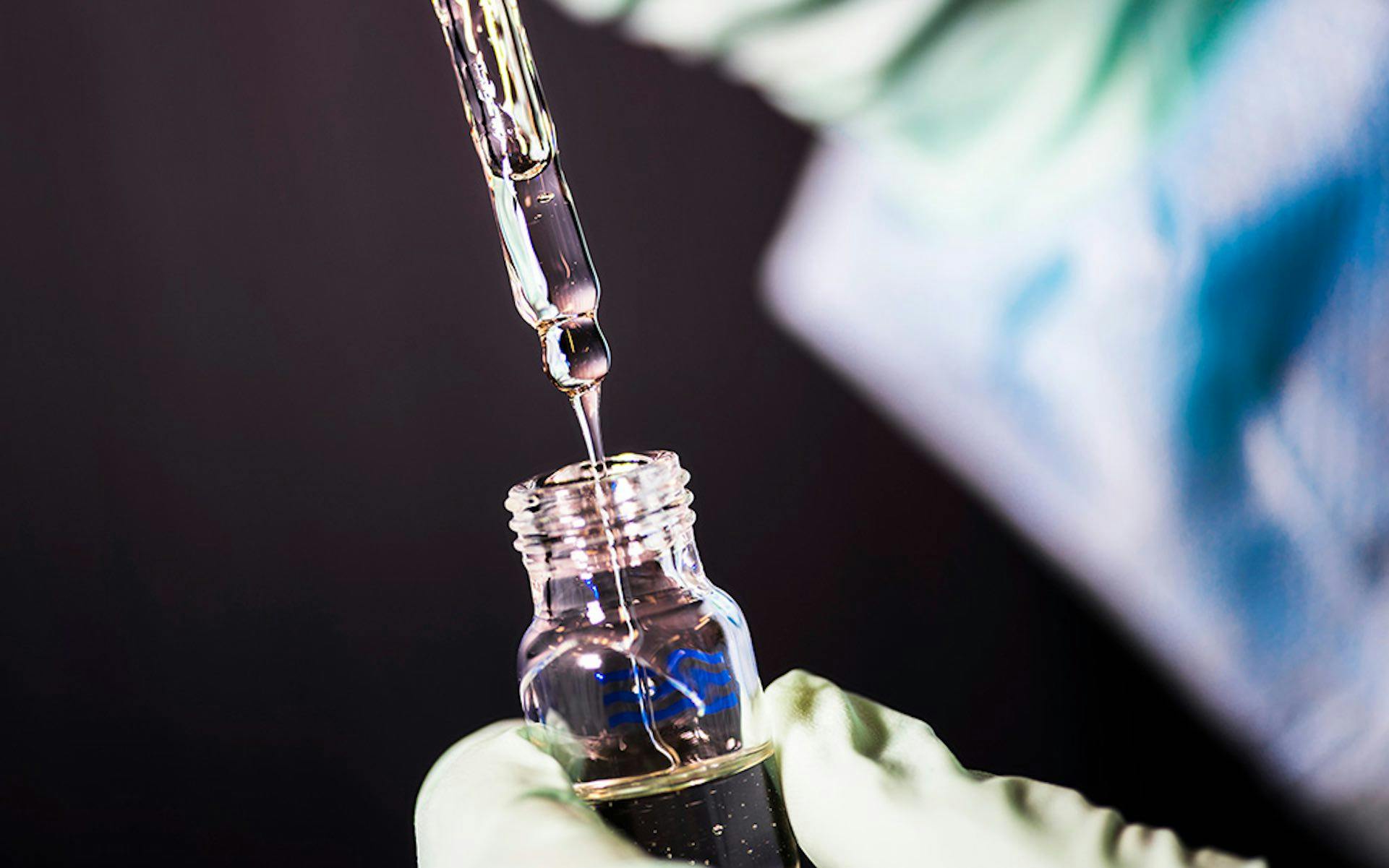Oregon cannabis consumers would be wise to avoid legal vapes labeled with vague ingredients like “natural flavor,” at least until April. That “natural flavor” can actually be a skin moisturizer ingredient derived from shark liver oil—a substance called squalane, or squalene. Burning it could give you a lung injury.
This Thursday, the Oregon Liquor Control Commission will move to ban the cosmetics ingredients squalane and squalene from entering the legal marijuana vape market and, subsequently, consumers’ lungs. The ban would take effect immediately.
[Dec. 18 update—The OLCC passed their rules package. Squalane and squalene-adulterated vape carts and pens are now under mandatory recall.]
The OLCC move would be Oregon’s first big regulation change since vaping-associated lung injuries killed 60 and injured 2,711 nationally in the fall of 2019. The mass injury series exposed critical loopholes in Oregon’s vape consumer safety rules.
As it stands today, it’s pretty much legal to put beard cream in a licensed Oregon THC vape pen without listing the ingredient. …
As it stands today, it’s pretty much legal to put beard cream in a legal Oregon THC vape pen without listing the ingredient, the OLCC confirmed to Leafly. That’s because unlicensed, third-party vape flavoring companies sell dangerous oil mixtures as a “trade secret,” and everyone down the supply chain—the licensed vape manufacturers, distributors, and retailers—can claim they didn’t know.
Oregon isn’t alone in this. Few legal states have kept pace with new practices in the vape space.
OLCC Director of Analytics and Research TJ Sheehy told Leafly Monday that, “under the existing rules, there is a sort of limited line of sight as to what the actual contents of the vape product are. But that’s the exact thing the [proposed new] rules are intended to solve.”
Thursday’s meeting of the OLCC “aims to address the acute and chronic potential for harm in some of these ingredients,” Sheehy said. “We’re creating some common sense foundations for a safer vape marketplace.”
Here’s the proposed OLCC rules as written.
Shop highly rated dispensaries near you
Showing you dispensaries nearVoluntary recall of Viscosity-tainted pens
The thick clear oil known as both squalane and squalene comes with overseas manufacturer warnings against huffing the goop or its burning fumes. However, at least one vape ingredient seller, True Terpenes of Portland, OR, re-branded the skin cream ingredient as the diluent “Viscosity,” the OLCC reports.
According to OLCC reports, True Terpenes sold the chemical to “several” licensed Oregon vape makers in 2018 through fall 2019. Some Oregon vape makers added it to their pens and sold it to consumers.
True Terpenes CEO Chris Campagna said in an email to Leafly that it has since reformulated Viscosity: “We had no reason to believe it was associated with any vape-related injury. At the time, to our knowledge, squalane was not under investigation.”
A Leafly News investigation first flagged Viscosity in August 2019. True Terpenes officials said they sold Viscosity to the vape industry without telling them how to use it, or if it was safe.
“Nothing is proven to be safe for vaping,” now-former True Terpenes Chief Science Officer David Heldreth told Leafly in 2019. “We are aware that people are using it for that use. We don’t recommend or direct them to do that. We don’t inherently believe there will be a danger, but it’s not something we can speak directly to because no one can.”
Oregrown PAX Era D9 Elite vaping products manufactured on or prior to August 31, 2019 are recalled.
In one confirmed instance, the company Oregrown bought Viscosity from True Terpenes and diluted vape carts that were sold in 268 licensed adult-use stores, said the OLCC. The company Oregrown is voluntarily recalling the remainder of the Viscosity batch: “Oregrown PAX Era D9 Elite” vaping products manufactured on or prior to August 31, 2019. If you have that product, toss it out or take it back to the store. The recall affects 200-300 Oregrown PAX Era pods.
Oregrown did not respond to an emailed request for comment.
More recalls likely to follow
But there’s a bigger problem. Oregrown isn’t the only Oregon licensee that bought Viscosity from True Terpenes. The OLCC is running an “active investigation” to track down other bad vape cart batches.
If new rules are approved Thursday, the voluntary pen recall would become mandatory immediately.
And more specific labeling requirements would apply to 344,000 individual vape products with vague ingredients labeling. Many of them have safe “natural flavors,” but some do not, said the OLCC. “There is no easy way” to tell, Sheehy said.
Time to modernize old vape rules
Oregon has some of the oldest vape safety rules in the country, and they need to be updated to fit with the times, the OLCC’s Sheehy told Leafly.
At the dawn of national legalization in 2012, the public worried about illicit market diversion and sales to minors. Vape rules were drafted off FDA food labeling guidelines. But those standards are for things that will pass through the stomach, not absorbed through lung tissue.
“The lungs treat things differently than the stomach, and exposing something to heat can cause additional unexpected chemical reactions,” said Sheehy.
In 2019, the world learned that THC vape cartridges can be diluted—or “cut”—with a class of heavy oils. Wholesalers diverted cosmetics and dietary supplements and sold them as vape cartridge ingredients, allowing illicit pen factories to boost profits by diluting the potency of pure THC oil.
Pure THC distillate can be worth $30,000 per liter. THC vape cartridge makers found they could double their money by cutting it with $500 worth of beard cream. The problem is, burning and inhaling cosmetics can harm lung tissue, scientists told the OLCC in a July 2020 meeting.

A class of chemicals—vitamin E acetate, squalane, squalene, MCT oil—found in certain “botanically derived terpene” products like True Terpenes’ Viscosity are linked to:
- lipophilic pneumonia
- lung abnormalities like so-called “ground-glass opacities” in X-rays
- lung tissue damage, resulting in acute respiratory distress syndrome (ARDS)
Why? Because burning vitamin E acetate can make phosgene, a chemical warfare agent that slowly melts lung tissue. Heating squalane and squalene to a modest 464℉ releases acetic acid, formic acid, and acetone, experts told the OLCC.
“Everyone learned a lot from EVALI and the nature of the problem,” said Sheehy. “We know because of the EVALI outbreak that vape products are a whole different type of animal in terms of the role that additives and flavorings can play on safety.”

EVALI likely lurking in Oregon
Two main cutting agents, vitamin E acetate and squalane, drove vape injuries in 2019 until illicit “pen factories” switched formulas, causing an end to what the CDC dubbed an “EVALI epidemic.” But lung injuries from THC vape carts aren’t contagious. And they’re not a force of nature. They’re an act of human ignorance and negligence.
A Leafly investigation in 2020 concluded that injuries would continue—albeit at a lower level—as long as consumers lacked access to pure, tested THC vape cartridges. Prohibition states had nearly 10 times the VAPI deaths, per capita, as legal states.
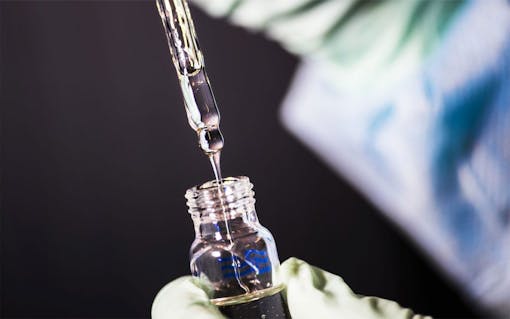
However, Leafly’s investigation also found the need to strengthen state regulations, most notably in Oregon, where the OLCC admits its current rules aren’t keeping squalane out of legal vape carts right now.
“Under the current rule framework as it exists today, these third party terpene manufacturers are by definition not regulated by us,” said Sheehy. “It isn’t really regulated by anyone.”
Oregon has zero reported cases of EVALI in 2020 linked to legal products, OLCC officials report. But no one is looking. The Oregon Public Health department is not collecting reported cases or reporting them publicly, Sheehy said. “All the public resources are being taken from EVALI and going to COVID.”
“The CDC specifically said that to diagnose EVALI in the age of COVID you need to rule out COVID because the symptoms overlap so much. They’re both respiratory issues,” Sheehy said.

“To say EVALI isn’t a problem, number one, is not true—California has had cases of EVALI. And number two: none of the mix of things that contributed to or caused EVALI have been prohibited or addressed in any substantive way in Oregon.”
For example, Oregon courts overturned the state’s vape flavor ban. Vitamin E acetate was banned, but CDC officials found that Oregon’s cases were squalene-related. Thursday’s regulatory actions could be a basic step toward increasing vape safety, the OLCC said.
Meeting preview: What the OLCC is planning to do Thursday, and why:
- Ban squalane, squalene, MCT oil, and propylene glycol (PG) as vape “adulterants”
- Institute a mandatory recall of vape products with squalane and squalene
- Create a more stringent and transparent review process of cannabis vaping products going forward because adulterants are strongly linked to acute and chronic lung injuries, and they’re currently allowed, with no way for consumers to know
How does this affect me?
- Throw out recalled vape carts
- Beware Oregon THC carts listing vague ingredients like “natural flavors”—for now. Mandatory recalls are likely. Tighter ingredients labeling rules would take effect by April 1, 2021.
- Instead, enjoy non-solvent extracts like rosin, bubble hash, keef, etc; or other modalities like flower, sublingual, edible, or topical
Addenda: Squalene’s history in Oregon vapes
According to the OLCC, Bulk Naturals LLC., dba True Terpenes, sold “Viscosity” that “solely contained squalene, squalane, and an unidentified olive extract” to OLCC recreational marijuana licensees between at least January 2018 and November 2019.
Squalene is a “botanically-derived terpene” that can be derived from shark liver oil and certain foods like olives; squalane is the hydrogenated version of squalene. Both are used as moisturizers in cosmetics. Neither is a “flavor.”
True Terpenes sold squalane as “Viscosity” without disclosing the ingredient, claiming trade secrets.
The OLCC caught squalane in Viscosity using independent lab analysis by ChemHistory and SC Labs. True Terpenes has complied with all of OLCC’s requests for information. Viscosity has since been reformulated, and according to True Terpenes, none of their products have contained squalene or squalane since November 2019.
True Terpenes’ Campagna said, “This product has not been sold in over a year. … We fully support the OLCC and as the investigation continues, we will provide our complete and steadfast cooperation.”


